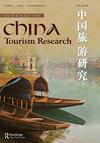促进酒店与旅游业的工作整合学习:lexximancer与学生自我反思陈述方法的整合
IF 2
Q3 HOSPITALITY, LEISURE, SPORT & TOURISM
引用次数: 5
摘要
一些研究讨论了酒店和旅游教育中的工作结合学习。遗憾的是,很少有人用元认知理论来探讨学生在这方面的自我反思性学习。本研究收集了144份香港本科生的自我反思学习陈述。结果显示,工作整合学习的主要主题围绕着工作细节、客人和服务、公司以及行业的多样性。不同行业的学习情况也有所不同。提出了工作整合学习与学生元认知的概念框架。学生的元认知集中在技能提升、个人改变和发展、自我意识、跨文化视野、课堂知识的应用等方面,从而导致他们的职业前景和对行业或公司的建议。本文章由计算机程序翻译,如有差异,请以英文原文为准。
Fostering Work-integrated Learning in Hospitality and Tourism: An Integration of Leximancer and Students’ Self-reflective Statement Approaches
ABSTRACT Several studies have discussed work-integrated learning in hospitality and tourism education. Unfortunately, few have taken metacognition theory to explore students’ self-reflective learning in this regard. In this study, 144 self-reflective learning statements were collected from undergraduate students in Hong Kong. Results showed the major themes of work-integrated learning revolving around the work details, guests and services, the companies, and diversity of the industry. Learning was also found different across industry sectors. A conceptual framework of work-integrated learning and students’ metacognition was developed. Students’ metacognition focused on such aspects as skill improvement, personal change and development, self-awareness, cross-cultural horizon, and application of class knowledge, thereby leading to their career prospects and recommendations given to the industry or company.
求助全文
通过发布文献求助,成功后即可免费获取论文全文。
去求助
来源期刊

Journal of China Tourism Research
HOSPITALITY, LEISURE, SPORT & TOURISM-
CiteScore
4.00
自引率
10.50%
发文量
40
期刊介绍:
Journal of China Tourism Research (JCTR) is the official journal of the International Association of China Tourism Studies (IACTS) and is now indexed in the Emerging Sources Citation Index (ESCI)! JCTR is a truly international journal that publishes the latest research on tourism (all articles printed in English with Chinese abstracts) that relates to China and the Chinese. It provides a rich forum for exchange of fresh information and ideas among academics and practitioners; fosters and enhances cutting-edge research activities that advance the knowledge of tourism; and discusses the relevance of tourism to Chinese society. The journal encourages interdisciplinary scholarship and commentaries, aims at the highest intellectual level, and only publishes manuscripts that make significant contributions to the subject areas.
 求助内容:
求助内容: 应助结果提醒方式:
应助结果提醒方式:


